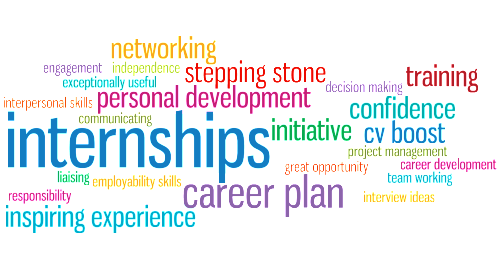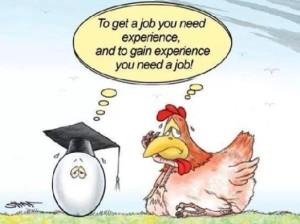Is work life balance really attainable?

Work life balance seems to be a buzz phrase in corporate culture. Ever since the economic downturn began in earnest many companies, organizations and institutions have been running very lean. Cut backs in staffing have increased and the expectations are now that we as workers are supposed to produce more with less headcount with which to distribute the labor. In many places there are expectations for overtime quotas, working on the odd weekend, extended work days all designed to mitigate the ever growing workload. With all of these factors it is no surprise that work life balance is a topic of great discussion.
Employees the world over have been pushing the limits of time spent on the clock while sacrificing their personal lives. From my experience I have seen certain individuals give there all to their companies and wound up disappointed because their efforts were not recognized by the management that they work for. I have also seen employers set unreasonable expectations, which pretty much set up whoever dares to try for failure. With that in mind, it is a flawed expectation by employees that the responsibility of implementing of a favorable work life balance lies squarely in the shoulders of their employer. Allow me to explain; it is not absurd that an employer asks an employee to put in some extra time to get some tasks completed, but having an employee work an inordinate amount of hours with no end in sight and to imply that continued employment maybe in jeopardy by refusing to do so, is totally unacceptable.
Work life balance is different for every individual, for example when I was fresh out of school, I would work long hours; primarily because it was requested of me. However interestingly enough, I developed a habit of working late whether or not I was asked to do so. I decided that as long as I was trying to pay my dues, I was going to put in the extra time and effort. At that time I was also single, had no children and no real commitments outside of my work life so the only thing I had to manage was my social life. For me it was fine because I was there to learn and trying to impress. However this would not be true for others that I worked with. Many had huge problems with the constant 60+ hour work weeks because it infringed on their family time and other commitments. As you can also imagine, in a highly competitive work environment you really strive to avoid the perception of contributing less than everyone else. This fact causes many to reluctantly sacrifice their non-work lives in order to keep up with the status quo.
There are many books, blogs, websites, YouTube clips and innumerable other resources that talk about work life balance and they all offer some sort of advice with varying levels of effectiveness. If you so desire you can avail yourself as I did. I must admit that some material was really outstanding. Today however I am going to close with a few pointers from my experience.
The first and most important rule:
If you are going to work extra-long hours it must be worth it! If you need to spend a host of extra time because you are not the expert at something, become the expert so that you can complete tasks in a faster and more efficient manner. Wherever I think I lack in a certain skillset I spend time trying to improve in that area.
Do not waste time:
There are many things that can eat your time at work like small talk, online shopping, Facebook, long bathroom breaks, long lunch breaks, errands and appointments during the work day. The first time I reviewed this a few years ago I was able to reclaim an extra 5+ hours a week and it made a huge difference in what I can accomplish in a work week.
Do not waste time too:
I mention this a second time because those mentioned before were non-work related. It is possible to waste time under the guise of doing our jobs. How is this fact possible wondering? The answer, in meetings! I only just learnt this within the last year or two; I was spending an inordinate amount of time in meetings. Am I implying that all meetings are a waste of time, no! But when every meeting I was attending was starting 15 minutes late and finished 25 minutes later than the scheduled end time then I found myself having to make up time at the end of the day. I had meetings with no agendas, where the interested parties were unprepared and what should have been a 15 minute discussion lasted an hour. My solution, decline all meetings that had no agenda, structure or purpose. Also, I capped the grace period for meetings to 10 minutes, if decisions were to be made, I made them. If the interested parties came late we just have abbreviated meetings which end at the original scheduled end time and if all else failed, schedule another meeting. The result another 5+ hours of time I was able to recoup.
Start early:
You would be amazed of how much things you can get done if you start your day early. Come in 1 hour before your scheduled start time before most of your coworkers have arrived, you will find that there are little to no distractions. Phones don’t ring as much, there is no one walking up to your desk looking for small talk and you are able to concentrate better. This makes a considerable difference to your productivity, plus it looks good.
Doing all these things in conjunction with speaking with management is pivotal to driving your work life balance to a favorable measure. The main point I want you to understand is that no one else can do it for you and you can’t achieve it without the corporation of management. So you must work together to make this a reality.
Please leave some comments and share your thoughts on this article and on work life balance.
Until next time remember,
as long as you have life, you should live it to your fullest potential.
 Hi, my name is Deon and I am a product of internships. I saw a funny picture circulating on the internet recently. It was an image of a chicken and an egg. The egg was wearing a graduation cap and what seemed to be his hen mother cutting a very forlorn figure on what is supposed to be a joyous occasion. The caption read, "To get a job you need experience, and to gain experience you need a job". I have to admit at first it seemed really hilarious. Then after a few days pondering on it, it seemed less funny and more of a humorous take on a very serious issue.
Hi, my name is Deon and I am a product of internships. I saw a funny picture circulating on the internet recently. It was an image of a chicken and an egg. The egg was wearing a graduation cap and what seemed to be his hen mother cutting a very forlorn figure on what is supposed to be a joyous occasion. The caption read, "To get a job you need experience, and to gain experience you need a job". I have to admit at first it seemed really hilarious. Then after a few days pondering on it, it seemed less funny and more of a humorous take on a very serious issue.
 Every year thousands of students graduate from university with their diplomas in hand. Their reward-- an arduous job search that is rife with uncertainty. As far as I have noticed, things have definitely evolved since the days of my post-graduation job search. One of the most overwhelming factors is the number of experienced hires that have flooded the market. Years of systematic layoffs have impacted hiring practices on two fronts: there are fewer jobs and more graduates to go around and secondly, there is stiff competition from the experienced hire community. Another difference I have observed is that many hiring managers have scaled back on the number of "fresh graduate" hires. The reason? Budgets that were once set aside for comprehensive training programs have been reduced and in some firms cut all together. Instead, recruiters are looking for hires who can contribute from day one, which usually means that the new graduate without any experience sometimes gets overlooked. What then is the answer to this dilemma? You guessed it, internships.
An internship is defined by dictionary.com as: any official or formal program to provide practical experience for beginners in an occupation or profession. Internships were invented to give soon to be, as well as newly minted graduates an opportunity to gain some useful experience. The concept is great. It gives young professionals valid experience with which they can bolster their resumes and get a leg up on others who have none. Internships can start from as early as high school. I remember my first internship. It was in high school back in the day. I worked as a graphics design artist for an advertising agency. It was a very insightful experience and I learned a lot during that summer. The biggest lesson? Graphics design work was not for me. It was not that I was not good at it, I was decent. But those who I worked with were so much better, talented and artistic. It helped me realize that it was something that I was good at but not passionate about, which is a feature that makes internships so valuable.
Internships not only give you an opportunity to get some experience, but as in my case, it also serves as a dry run into the industry or the company that you are interested in. Lucky for me, I had my first while in high school, which gave me ample time to change the academic qualifications that I would then pursue. However, many college students find themselves switching majors based on internship experiences as well.
The benefits of internships are also great for the organization. As a hiring manager, an internship gives you an opportunity to assess a potential hire much more effectively than an interview ever would. With an interview, you have to make a decision based on evidence. But, you are also taking a risk that hopefully what you observed during the hiring process will actually work out in the long term. With an internship, you get some extra time and you don't have any long-term commitments to make a full-time hire. If you like them you can move forward, if not you can move on.
When it comes to internships, experience is more important than pay. I have known individuals who have turned down excellent internship opportunities because they simply could not afford to work for very little pay. My advice is that the onus is on you to make it work, as long as you are getting the right experience. Any experience, and I mean any experience is better than none at all. Even if your internship is only for 2 half days a week, the learning on the job has much more developmental value than sitting in a class room.
I close with this, I fully endorse internships. If possible one should have at least a few before graduating college, starting while in high school. Nothing could better prepare you for work than actual work. Some places have formal programs, others have co-ops which offer students credit toward their graduation requirement. The rest may depend on the manager or department to make it happen. Whatever the arrangement, just remember it takes a considerable time commitment on the part of the employees to facilitate an intern, so maximize it!
Until next time remember, as long as you have life, you should live it to your fullest potential.
Every year thousands of students graduate from university with their diplomas in hand. Their reward-- an arduous job search that is rife with uncertainty. As far as I have noticed, things have definitely evolved since the days of my post-graduation job search. One of the most overwhelming factors is the number of experienced hires that have flooded the market. Years of systematic layoffs have impacted hiring practices on two fronts: there are fewer jobs and more graduates to go around and secondly, there is stiff competition from the experienced hire community. Another difference I have observed is that many hiring managers have scaled back on the number of "fresh graduate" hires. The reason? Budgets that were once set aside for comprehensive training programs have been reduced and in some firms cut all together. Instead, recruiters are looking for hires who can contribute from day one, which usually means that the new graduate without any experience sometimes gets overlooked. What then is the answer to this dilemma? You guessed it, internships.
An internship is defined by dictionary.com as: any official or formal program to provide practical experience for beginners in an occupation or profession. Internships were invented to give soon to be, as well as newly minted graduates an opportunity to gain some useful experience. The concept is great. It gives young professionals valid experience with which they can bolster their resumes and get a leg up on others who have none. Internships can start from as early as high school. I remember my first internship. It was in high school back in the day. I worked as a graphics design artist for an advertising agency. It was a very insightful experience and I learned a lot during that summer. The biggest lesson? Graphics design work was not for me. It was not that I was not good at it, I was decent. But those who I worked with were so much better, talented and artistic. It helped me realize that it was something that I was good at but not passionate about, which is a feature that makes internships so valuable.
Internships not only give you an opportunity to get some experience, but as in my case, it also serves as a dry run into the industry or the company that you are interested in. Lucky for me, I had my first while in high school, which gave me ample time to change the academic qualifications that I would then pursue. However, many college students find themselves switching majors based on internship experiences as well.
The benefits of internships are also great for the organization. As a hiring manager, an internship gives you an opportunity to assess a potential hire much more effectively than an interview ever would. With an interview, you have to make a decision based on evidence. But, you are also taking a risk that hopefully what you observed during the hiring process will actually work out in the long term. With an internship, you get some extra time and you don't have any long-term commitments to make a full-time hire. If you like them you can move forward, if not you can move on.
When it comes to internships, experience is more important than pay. I have known individuals who have turned down excellent internship opportunities because they simply could not afford to work for very little pay. My advice is that the onus is on you to make it work, as long as you are getting the right experience. Any experience, and I mean any experience is better than none at all. Even if your internship is only for 2 half days a week, the learning on the job has much more developmental value than sitting in a class room.
I close with this, I fully endorse internships. If possible one should have at least a few before graduating college, starting while in high school. Nothing could better prepare you for work than actual work. Some places have formal programs, others have co-ops which offer students credit toward their graduation requirement. The rest may depend on the manager or department to make it happen. Whatever the arrangement, just remember it takes a considerable time commitment on the part of the employees to facilitate an intern, so maximize it!
Until next time remember, as long as you have life, you should live it to your fullest potential.
